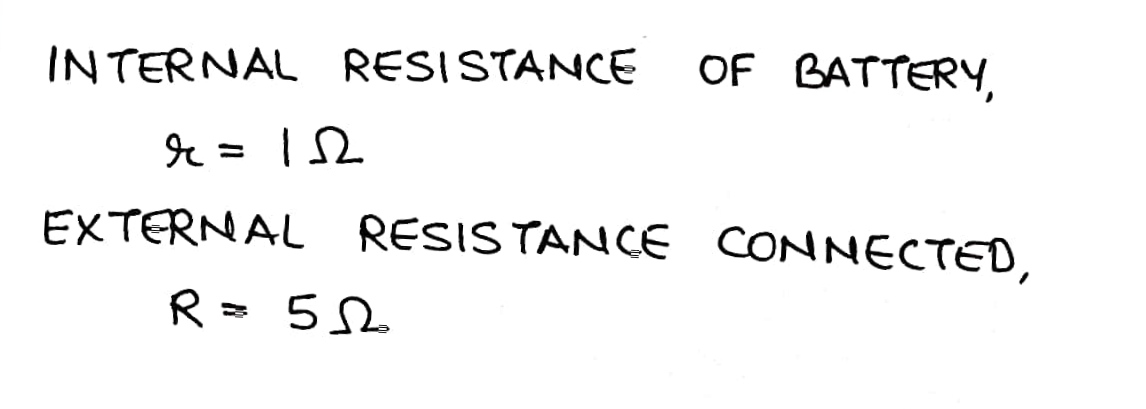A battery has a terminal voltage of 6.0 V when no current flows. Its internal resistance is 1.0 Ω. A 5.0-Ω resistor is connected across the battery terminals. (a) Calculate the current flowing through the resistor. (b) What voltage would a voltmeter measure across the battery terminals with the 5.0-Ω resistor connected to the battery?
Ohm's law
Ohm’s law is a prominent concept in physics and electronics. It gives the relation between the current and the voltage. It is used to analyze and construct electrical circuits. Ohm's law states that the voltage across a conductor is directly proportional to the current flowing through it.
Path of Least Resistance
In a series of alternate pathways, the direction of least resistance is the actual or metaphorical route that offers the least resistance to forwarding motion by a given individual or body.
A battery has a terminal voltage of 6.0 V when no current flows. Its internal
resistance is 1.0 Ω. A 5.0-Ω resistor is connected across the battery terminals.
(a) Calculate the current flowing through the resistor.
(b) What voltage would a voltmeter measure across the battery terminals with the 5.0-Ω resistor connected to the battery?

Trending now
This is a popular solution!
Step by step
Solved in 3 steps with 3 images









